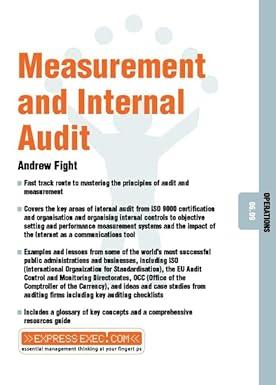Question
Hi All, I'm working on this case study : Facebook Earnings Enjoy a Nearly $1Billion Tax Windfall From Accounting Change Facebook Inc.s 2016 earnings got
Hi All,
I'm working on this case study : Facebook Earnings Enjoy a Nearly $1Billion Tax Windfall From Accounting Change
Facebook Inc.s 2016 earnings got a boost of more than $900 million from an accounting changeand the same change could help lift earnings at other technology companies. Facebook said Wednesday after the market closed that its full-year earnings reflected a $934 million reduction in its income-tax provision, including $214 million in the fourth quarter, from a new rule affecting the accounting for stock payments to employees. The tax reductions contributed to big increases in the companys fourth-quarter and 2016 net income. The change, which accounting-rules makers enacted last March, is expected to increase the earnings of companies like Facebook that are heavy users of employee stock compensation and have seen their stock prices rise. Companies like Microsoft Corp. and Alphabet Inc. have already adopted the change and saw increases in their earnings, and the same could happen at Amazon.com Inc., Apple Inc. and others when all companies are required to adopt the change this year.
Its a windfall, said Jack Ciesielski, president of accounting-research firm R.G. Associates, who issued a report in October on the effects of the change.
David Wehner, Facebooks chief financial officer, said on the companys fourth-quarter conference call that the move was purely an accounting convention change and doesn't change the cash taxes we pay. A Facebook spokesman declined to comment further.
The Financial Accounting Standards Board, which sets U.S. accounting rules, approved the change in an attempt to simplify companies accounting for employee stock payments. The accounting is changing in several different ways,
but most of the effect on earnings has to do with the tax benefits that companies get when their employees exercise the stock options they have been granted.
That is a compensation cost to the company, and it is tax-deductible. When options are exercised, it is typically after the companys stock price has risen, making them more valuable, and so the company recognizes excess tax benefitsthe deductions over and above those it expected to realize when the options were first granted.
Under the old rules, those excess tax benefits go into the companys shareholder equity. But under the FASB change, they will be recognized on the income statement immediatelyand that reduces the companys provision for taxes, boosting net income.
The opposite could also happena tax deficiency that would lower earnings, if options expire unexercisedthough almost all of the companies adopting the change so far have reported benefits.
The change helped Facebooks fourth-quarter net income soar to $3.57 billion, up from $1.56 billion a year ago. Full-year earnings were $10.22 billion, up from $3.69 billion.
In addition, Facebooks retained earningsthe total of a companys past profits and losses, minus any dividends it pays outgot a boost of $1.67 billion as of the beginning of 2016.
The FASB change also boosts Facebooks operating cash flow, because the excess tax benefits are now classified as cash flow from operations instead of from financing. The companys total cash flow remains the same.
Companies are required to adopt the change effective this year. Hundreds of companies like Facebook have chosen to adopt it early, with 2016 earnings, although Mr. Ciesielski said they havent always disclosed the change well.
Microsoft adopted the change effective last March, and said in its annual report that its excess tax benefits lowered its tax provision by $402 million for the fiscal year that ended in June. Alphabet said it recorded excess tax benefits of $211 million for the first quarter of 2016, when it adopted the change. Microsoft declined to comment; Alphabet couldnt be reached for comment.
Amazon has yet to adopt the rule change, but the company said in its most recent quarterly report that it expects the change to have a material impact on its financial statements. Amazon had $829 million in excess tax benefits in 2016, according to its cash flow statement. The company could not immediately be reached for further comment.
Apple will adopt the change in the quarter that ends in December 2017, the company said in its quarterly report Wednesday. Apple had $178 million in excess tax benefits in its fiscal first quarter that ended in December 2016, and $407 million in the fiscal year that ended in September, according to its cash flow statements. An Apple spokeswoman could not immediately be reached for comment.
I need help with this section of my paper:
* Implications for future of industry and auditors.
*What to study in the future (future research based on outcome)
Step by Step Solution
There are 3 Steps involved in it
Step: 1

Get Instant Access to Expert-Tailored Solutions
See step-by-step solutions with expert insights and AI powered tools for academic success
Step: 2

Step: 3

Ace Your Homework with AI
Get the answers you need in no time with our AI-driven, step-by-step assistance
Get Started


